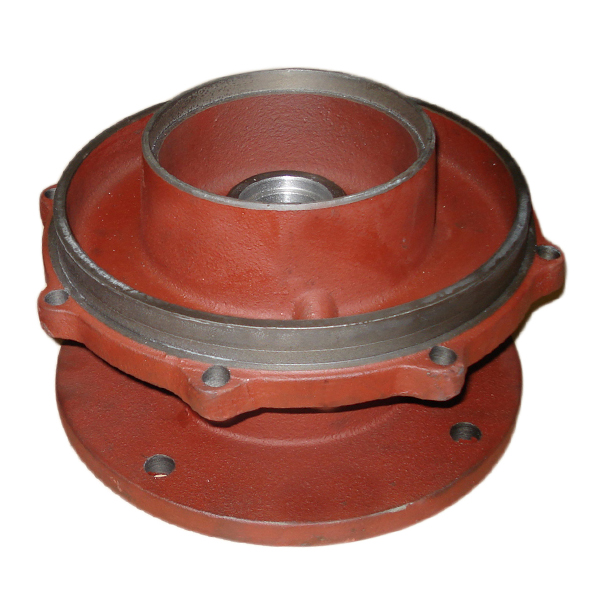Mobile:+86-311-808-126-83
Email:info@ydcastings.com
Gas Pipe End Cap for Secure Pipe Closure and Protection Solutions
Understanding Gas Pipe End Caps Importance and Applications
Gas pipe end caps are crucial components in various industries, particularly in the fields of plumbing, gas distribution, and construction. These end caps serve a specific purpose, acting as closures for the ends of gas pipes, thereby ensuring safety, efficiency, and durability in gas transportation and storage systems. In this article, we will explore the significance of gas pipe end caps, their various types, materials, and applications.
What are Gas Pipe End Caps?
Gas pipe end caps are fittings designed to seal the open ends of pipes. They can prevent contaminants from entering the pipe, stop gas leaks, and maintain system pressure. Without these components, gas pipes would be vulnerable to external elements, leading to potential safety hazards and system inefficiencies.
Types of Gas Pipe End Caps
Gas pipe end caps come in several types, each catering to specific needs based on the pipe material and application
1. Threaded End Caps These caps are designed for easy installation and removal, featuring internal threads that fit over the threaded ends of pipes. They are commonly used in applications where occasional access to the pipe interior is necessary.
2. Welded End Caps Welded caps provide a permanent solution, typically used in high-pressure gas systems. These caps are welded onto the pipe ends, ensuring a secure and leak-proof seal.
3. Slip-On End Caps These caps slide over the pipe ends and are commonly used in low-pressure applications. They are easy to install and can be secured using screws or adhesives.
4. Flanged End Caps These caps feature a flange that allows for bolting onto the pipe ends. Flanged end caps are ideal for systems requiring frequent disassembly for maintenance or inspection.
Materials Used for Gas Pipe End Caps
The material of the end cap is critical, as it must withstand specific environmental conditions and pressures. Common materials include
gas pipe end cap

- Steel Durable and strong, steel end caps are often used in high-pressure systems. Stainless steel offers enhanced corrosion resistance, making it suitable for outdoor applications.
- PVC (Polyvinyl Chloride) Lightweight and resistant to corrosion, PVC end caps are often used in residential gas systems and certain industrial applications.
- CPVC (Chlorinated Polyvinyl Chloride) This material can withstand higher temperatures than standard PVC and is often used in hot water or corrosive environments.
- Copper Though less common, copper end caps are sometimes used in plumbing systems. They are resistant to rust and corrosion, providing a long-lasting solution.
Applications of Gas Pipe End Caps
Gas pipe end caps are utilized in a myriad of applications, including
1. Residential Gas Lines In homes, gas pipe end caps are used to secure the ends of gas lines, preventing gas leaks and ensuring safety.
2. Industrial Gas Systems In commercial settings, end caps are essential for maintaining the integrity of gas pipelines. They are employed in everything from petrochemical plants to food processing facilities.
3. HVAC Systems In heating, ventilation, and air conditioning (HVAC) systems, end caps are used to seal ducts and pipes, ensuring the efficient flow of gases.
4. Safety Equipment In various applications, end caps serve as critical safety devices. They ensure that pressurized gas does not escape and that the system remains under control.
Conclusion
Gas pipe end caps may seem like simple components, but they play a vital role in the functionality and safety of gas systems. By sealing the ends of pipes, these fittings prevent leaks, protect against contaminants, and maintain pressure across the system. By understanding the various types and materials of gas pipe end caps, industries can choose the right products for their specific applications. This careful selection not only enhances safety and efficiency but also extends the lifespan of the gas distribution system. Whether used in residential settings or industrial applications, gas pipe end caps are indispensable in ensuring a reliable and safe gas supply.
-
Why Should You Invest in Superior Pump Castings for Your Equipment?NewsJun.09,2025
-
Unlock Performance Potential with Stainless Impellers and Aluminum End CapsNewsJun.09,2025
-
Revolutionize Your Machinery with Superior Cast Iron and Aluminum ComponentsNewsJun.09,2025
-
Revolutionize Fluid Dynamics with Premium Pump ComponentsNewsJun.09,2025
-
Optimizing Industrial Systems with Essential Valve ComponentsNewsJun.09,2025
-
Elevate Grid Efficiency with High-Precision Power CastingsNewsJun.09,2025











